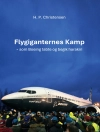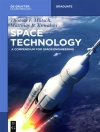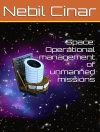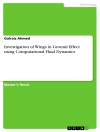This book systematically investigates the Mars entry problem from the perspectives of deterministic optimization, uncertainty optimization, and guidance. Began with a detailed review of the robotic missions and human-scaled exploration plans to Mars, theories or concepts of optimal control, uncertainty quantification, robust optimization, model predictive control, sequential convex programming, and computational guidance are subsequently introduced. Correspondingly, this book presents a series of trajectory planning and guidance algorithms to improve the robustness, reliability, and safety of the Mars missions. Because the Mars entry problem is studied using advanced mathematics, including probability theory, optimization theory, and cybernetics, thus the book is primarily designed as a textbook for graduate students in aerospace engineering, aeronautics, and astronautics departments. Engineers and researchers may also use this book as a reference or tutorial to help with the modeling and simulation of the Mars entry problem due to its thorough simulations and analyses.
Spis treści
Fundamental Knowledge.- Introduction.- Preliminaries.- Deterministic Optimization.- Improved Gauss pseudospectral method for Mars entry trajectory planning.- Improved sequential convex optimization for Mars entry trajectory planning.- Pseudospectral model predictive convex programming for Mars entry trajectory planning.- Indirect sequential convex programming for Mars entry trajectory planning.- Mars entry and powered descent using collaborative optimization.- Uncertainty optimization.- Mars entry trajectory optimization with desensitized optimal control.- Uncertainty quantification for Mars entry.- Robust trajectory optimization for Mars entry.- Robust optimal guidance method.- Direct model reference adaptive tracking guidance for Mars entry.- Computational guidance method for Mars entry.
O autorze
Shuang Li received his B.S.E, M.S.E, and Ph.D. degrees all in the spacecraft design from the Department of Aerospace Engineering at Harbin Institute of Technology, China, in 2001, 2003, and 2007, respectively. Since 2007, he has been with the College of Astronautics, Nanjing University of Aeronautics and Astronautics, China, where he is a full professor and the founding director of Advanced Space Technology Laboratory (ASTL) now. His research interests include spacecraft guidance navigation and control (GNC), astrodynamics, and space mission design and analysis. He has been the author of over 120 articles in reputable journals and conference proceedings. He is an associate editor for Journal of Spacecraft and Rockets and Astrodynamics and an editorial board member of Space: Science & Technology, Chinese Space Science and Technology (in Chinese), Journal of NUAA (in Chinese), Journal of Deep Space Exploration (in Chinese), and Flight Control & Detection (in Chinese). He served for Acta Astronautica as a guest editor for a special issue (Fourth IAA Conference on Dynamics and Control of Space Systems) and a special section (Special Section on 9th China Trajectory Optimization Competition).
Xu Liu received the B.S. and Ph.D. degrees in Guidance, Navigation, and Control from Nanjing University of Aeronautics and Astronautics, Nanjing, China, in 2017 and 2023, respectively. He is a Lecturer with the Department of Automation, Nanchang University, Nanchang, China. His research interests include the trajectory optimization, guidance, navigation, and control technologies of flight vehicles.Xiuqiang Jiang received his Ph.D. degree from the Nanjing University of Aeronautics and Astronautics, China. He was a visiting scholar at the University of Arizona, USA, during 2017–2018. He is currently an associate professor at the Department of Flight Vehicle Control and Information Engineering, Sichuan University, China. His research interests include trajectory optimization, uncertainty quantification, and guidance technologies for spacecraft. He published 21 papers in authoritative aerospace journals, including Progress in Aerospace Sciences, Aerospace Science and Technology, Acta Astronautica, etc., and also served as the reviewer for 11 academic journals.
Yuming Peng received his M.S.E. degree from Nanjing University of Aeronautics and Astronautics in 2011 and his Ph.D. degree from Nanjing University in 2019. Since 2011, he has worked as an engineer and a senior engineer at the Shanghai Institute of Satellite Engineering, Shanghai, China. He worked as an engineer in Orbit Dynamics and Control for China’s first Mars probe, Tianwen 1.












